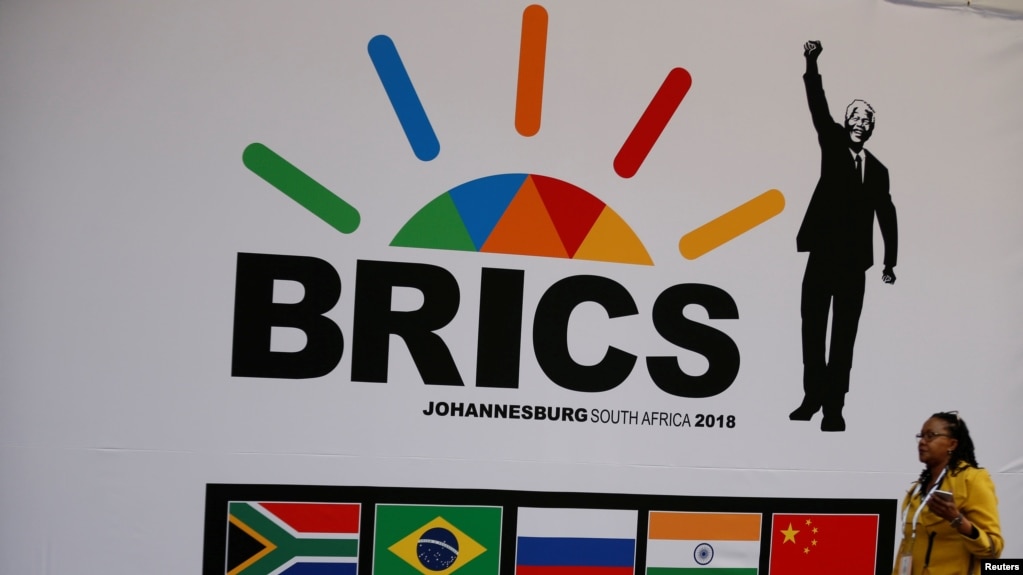

The BRICS group of fast-developing economies — Brazil, Russia, India, China and South Africa — has positioned itself as an alternative to the Western-dominated global order.
BRICS officials say that spirit has sparked the interest of some 40 countries in joining as the bloc gears up for a summit in August.
Current BRICS chair South Africa is hosting the three-day meeting in Johannesburg next month and says BRICS expansion will be high on the agenda.
Argentina, Iran, Saudi Arabia and the United Arab Emirates are among the countries looking to join, South Africa's BRICS ambassador, Anil Sooklal, told journalists, adding that it demonstrated the confidence Global South nations have in the organization.
"Twenty-two countries have formally approached BRICS countries to become full members. There's an equal number of countries that has been informally asking about becoming BRICS members," Sooklal said.
BRICS is seen as "a powerful force," said Sooklal, who added that measured by purchasing power parity it now accounts for 31.7% of global GDP, having overtaken the G-7 — a forum of advanced democracies that includes the U.S.
But analysts differ in their assessment of what concrete achievements BRICS has made since its inception in 2009.
"The New Development Bank, which has done a substantial amount of lending … is the most prominent achievement. It's also led to some increased trade between the countries, it's won some international attention," said Daniel Bradlow, a University of Pretoria professor who has studied the bloc.
However, he said the group had a "mixed record" and it was yet to be seen whether its potential would be realized in the future.
But Mikatekiso Kubayi, a researcher at the Institute for Global Dialogue at the University of South Africa, says he thought BRICS had achieved a fair amount, contrary to expectations.
"You will recall that from the onset BRICS was an outfit that was easily dismissed by many, particularly in the West, seen merely as some concept," Kubayi said. "It has achieved a lot, you know, in the 15 years that it's been around."
He points to the fact the bloc founded an international development finance institution, as well as how it's been looking at alternative ways of conducting trade and promoting local currencies, as some of those achievements.
However, Aly-Khan Satchu, an economic analyst, says for a long time the body was indeed primarily conceptual in nature.
"I think if we're looking for a silver-bullet type thing that's come out of it so far, I don't think that's clear, but I think in the long run, what we're seeing is a serious pole develop, and you know the main issue is the increased multi-polarity of the world and I think BRICS continues to represent that," Satchu said.
Except for Russian President Vladimir Putin, who can't travel to South Africa because he's wanted by an international court for war crimes in Ukraine, all the BRICS heads of state will be attending the summit in person next month.
|